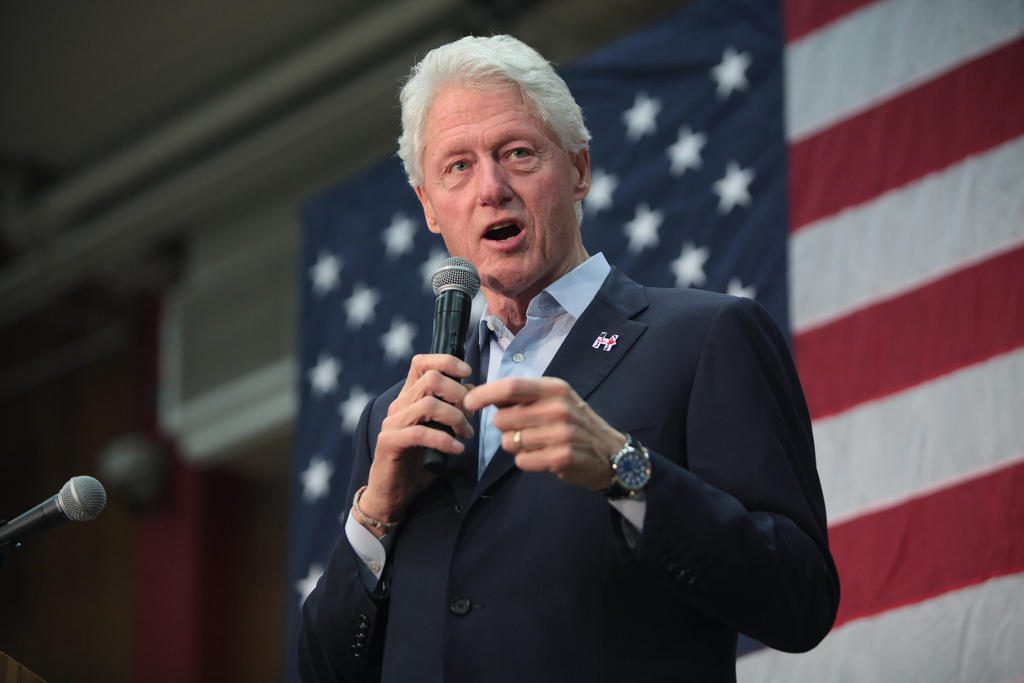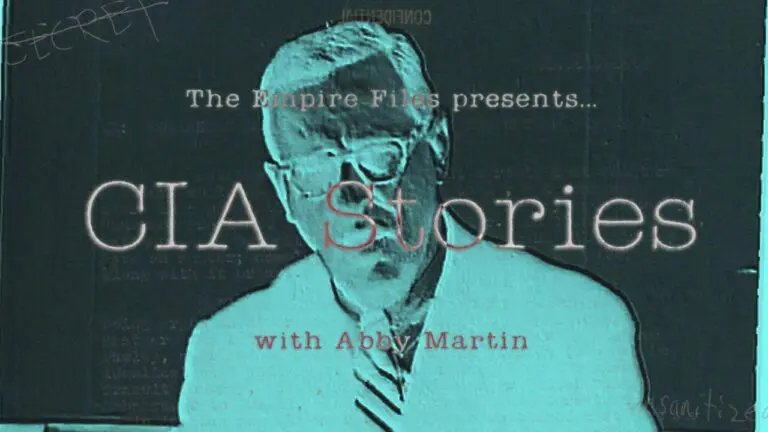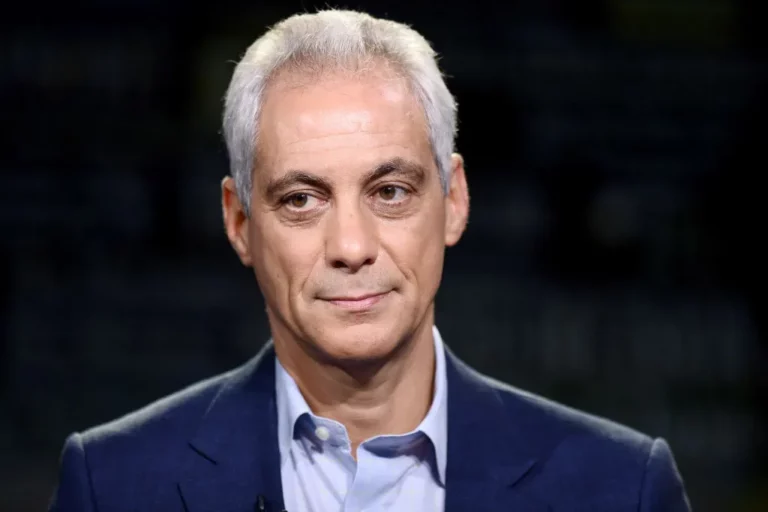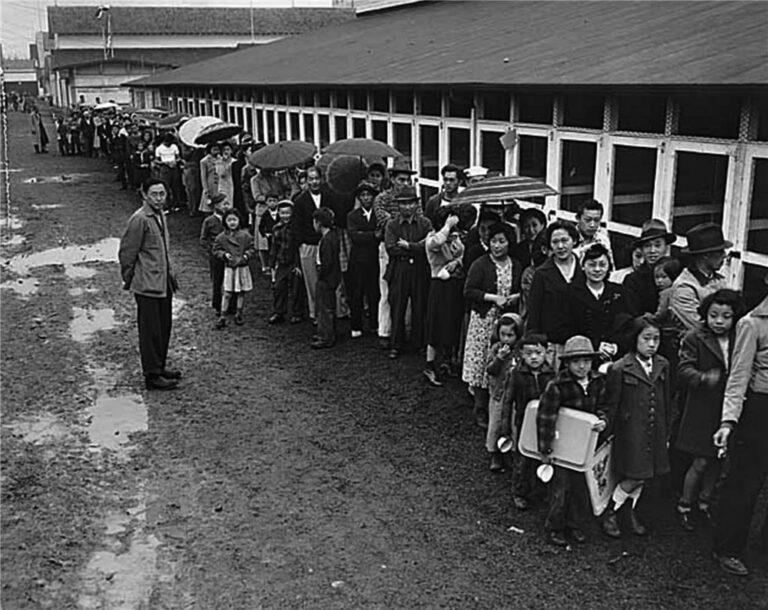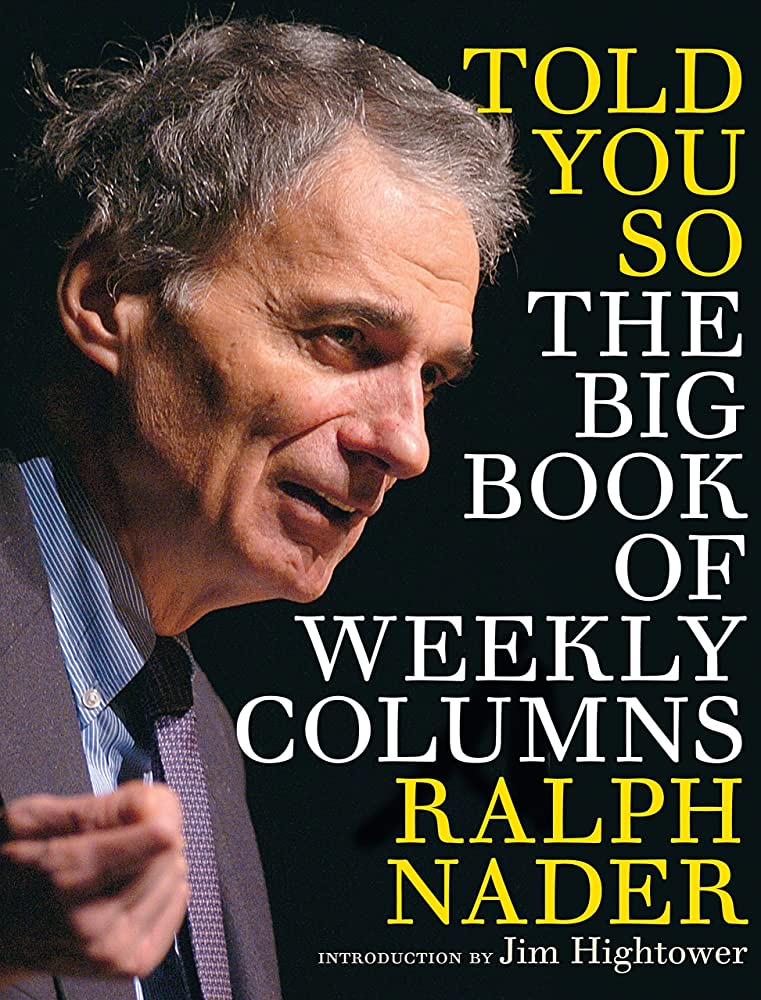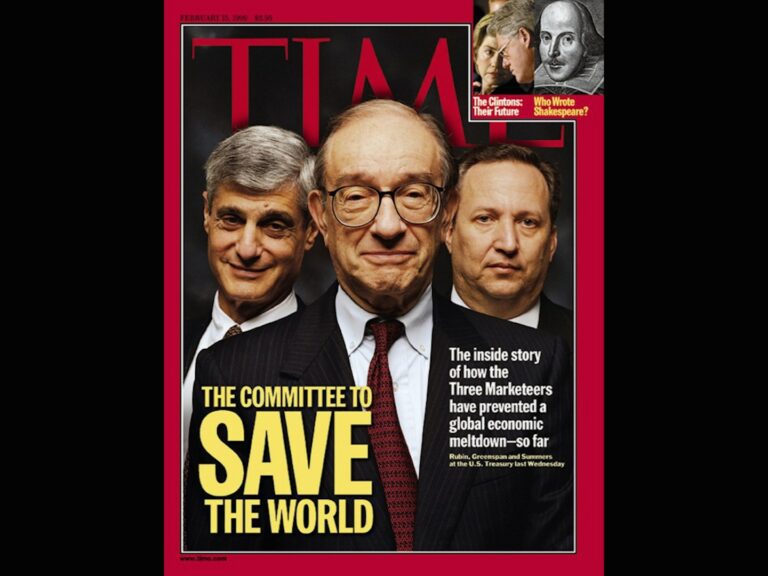On Reality Asserts Itself, Tom Frank says in the world of the wealthy, liberalism is something you do to offset your rapacious behavior in other spheres – with host Paul Jay. This episode was produced on January 2, 2018.
PAUL JAY: Welcome back to the Real News Network. I’m Paul Jay and this is Reality Asserts Itself. In an article titled, “What Does Harvey Weinstein Tell Us About the Liberal World,” Thomas Frank writes:
“What explains Weinstein’s identification with progressive causes? Perhaps it was about cozying up to power, the thrill of being a friend of Bill Clinton.” A little further down: “In the world of the wealthy, liberalism is something you do to offset your rapacious behavior in other spheres. It’s no coincidence that, in Weinstein’s first response to the accusations against him, he thought to promise war against the National Rifle Association and to support scholarships for women.
“But it’s also something deeper than that. Most people on the left think of themselves as resistors of authority, but for certain of their leaders, modern-day liberalism is a way of rationalizing and exercising class power. Specifically, the power of what some like to call the “creative class,” by which they mean well-heeled executives in industries like Wall Street, Silicon Valley, and Hollywood. Worshiping these very special people is the doctrine that has allowed Democrats to pull even with Republicans in fundraising and that has buoyed the party’s fortunes in every wealthy suburb in America.
“Harvey Weinstein seemed to fit right in. This is a routine of liberalism that routinely blends self-righteousness with upper class entitlement. That makes its great pronouncements from Martha’s Vineyard and the Hamptons. That routinely understands the relationship between the common people and showbiz celebrities to be one of trust and intimacy.”
Now joining us again in the studio is Thomas Frank. Thanks for joining us.
THOMAS FRANK: It’s my pleasure, Paul.
PAUL JAY: That’s a revealing and, I don’t know, I’m not sure vicious is the right word, realistic, scathing.
THOMAS FRANK: Yeah. Yeah, that’s not vicious. I’m sorry, of course, I’m biased, I wrote that. I thought that was fair. Basically, the Harvey Weinstein case happened and I think uniquely among American journalists I had never heard of the guy before. I started reading up on him, who is this guy? He’s been accused of sexually harassing women in hundreds of cases, or I don’t know how many, dozens of cases, many, and I’d never heard of him before. I start reading up on him and you keep reading about his intimacy of leaders with the Democratic party. He’s always giving them money, hosting their fundraisers, hosting this good cause and that good cause, and he sort of fit into a type of liberal supporter that I’m very familiar with.
Take a step back, earlier in ‘Listen, Liberal’ I wrote about the Clinton Foundation and what the Clinton Foundation does. I’m not talking here about the various accusations that people made of them, acting as a slush fund or that sort of thing. What I’m talking about is the way that they act as a — how would you put this– a moral exchange, for people who are quite bad. A lot of foundations do this, so my argument is that this is what liberalism is-
PAUL JAY: The Saudis give them money and so do others, yeah.
THOMAS FRANK: Yeah. You go to their events and there is a very high-octane goodness, lots of celebrities, people who are celebrated for being good people, highly, highly, highly moral people, often people who are only known by one name like Bono or Malala. People who are saintly, and there’s a kind of exchange there where those people are made to rub up against figures from American business and business people donate this money to all these good causes. Then the Clintons are the facilitators in the middle of this. They have a hand in each camp, in the extremely, highly moral, saintly camp and also in the really dirty, awful, ugly business world. There’s a kind of moral exchange that happens via the Clinton Foundation. Harvey Weinstein really, I think better than almost anybody I know of, not only fits into that, but was acting it out. When he first was accused was like, “Oh, you’re saying I’m doing these bad things well, okay, I’ll go after the National Rifle Association, I’ll give money to good causes.”
That’s what liberalism is. What was the phrase that I used in ‘Listen Liberal,’ it’s virtue offsets. It’s like rich people buying you know carbon offsets, but they’re buying like liberalism offsets.
PAUL JAY: Karma offsets.
THOMAS FRANK: Yeah, exactly. Exactly. That’s what it is. It’s a moral/financial operation that doesn’t really depend on getting votes or winning elections or anything like that. It’s all about this exchange of karma, buying the karma offsets.
PAUL JAY: It’s good PR.
THOMAS FRANK: Yeah, that too.
PAUL JAY: It makes your company look like you care about things. How does this resonate amongst sections of rural America, where towns are dying and workers who don’t have jobs? It seems to me like people get the vulgar lies to some extent of Trump. We interviewed a guy in Dundalk, which is a place outside of Baltimore, very [crosstalk 00:06:39]-
THOMAS FRANK: I’m familiar with it.
PAUL JAY: Used to be one of the big steel mills, now high unemployment and terrible drug problems, families falling apart. This guy gave a wonderful quote. He says, “It’s not that we don’t think Trump is crazy, you know, we know he’s crazy. We don’t believe most of what he says and we voted for him.”
THOMAS FRANK: Yes, yes.
PAUL JAY: What does that tell you about what we think of this political system?
THOMAS FRANK: Wow. That’s a great way of putting it. I could add on to that. I think of my people in Kansas who are Bible believing Christians and voted for a man who boasted about groping women, said it was his right as a celebrity to grope women. They didn’t agree with that. It’s a monstrous statement what Donald Trump said and they voted for him anyway. That’s a really interesting question, but to go back to Harvey Weinstein this is the broader question of the relationship between the Democratic party and celebrities. Look, they make a very simple calculation, they say Americans like to go to movies. Movies are one of the best things that our country does. We export them all around the world. It’s a highly successful industry. It’s our kind of industry, the Democrats say. It’s creative class, all that kind of nonsense. It’s our sort of thing.
What they don’t understand is that it cuts both ways. Yes, Americans like to go to movies, but Americans hate aristocracy, and that’s what celebrity is. There’s something very deep in the American grain, we are democratic to the core in this country, another word for it by the way is populist, that we can’t stand the idea of stars and celebrities.
PAUL JAY: Well, sure love-hate because the same people that are voting for Trump are at the grocery stores buying celebrity magazines.
THOMAS FRANK: Yeah, yeah. No, it’s a love-hate thing because these same people will-[crosstalk 00:08:43] These same people will go to church on Sunday and listen to these denunciations of sinful Hollywood. You know how it is, it’s America. They simultaneously will take both sides of the question, but it’s not as simple as Democrats think. They think that just hanging around with celebrities and doing benefit shows with whatever rockstar, or something like that, that’s going to help them win the election and it does no such thing. It never works. Harvey Weinstein’s a great example of that.
PAUL JAY: I asked you this in the last segment, but I’ll ask you again because you spend a lot of time talking with people that have voted for Republicans, used to vote for Democrats, now vote Republican. The fact is as much as you and I have been critiquing Clinton and critiquing Obama, in small ways, not as much as we would like to see, actually life is better for people, it’s objective, you can look at it, under Democrats than under Republicans. The Republicans are worse. As much as these guys serve the interests of Wall Street, being Democrats, the Republicans are worse.
THOMAS FRANK: That is true, and I would agree with that, but those statistics are massively skewed by the Roosevelt administration, Hoover and Roosevelt. You know what I mean? Anyway, doesn’t matter. Then of course George W. Bush.
PAUL JAY: Yeah. As fractured and dog’s breakfast as the Affordable Healthcare Act was, it has some reforms that-
THOMAS FRANK: Yes, better than nothing. That is for sure, yes, yes.
PAUL JAY: Preexisting conditions were covered, 26 years old, and so on. The hypocrisy of the Democrats infuriates whole sections of America, but why doesn’t the hypocrisy of the Republicans infuriate them as much or more? It’s as bad.
THOMAS FRANK: Now we’re back to that same question, and I would go back to the answer that I was working on before, which is that the Republicans have, for whatever reason and I don’t really know the answer to this, have become very, very, very good at the populist style at pretending to be a man of the people and acting like a man of the people, and doing the motions, and talking the languages. Democrats are very uncomfortable with it anymore. This is largely a reflection of two things; one, the Republicans have studied history and particularly the history of the ’30s. This is their disaster period. The Republican party was almost destroyed in the 1930s, and it was all at the hands of these left wingers and these Huey Long types and Franklin Roosevelt, at the hands of populism and because they had been identified with Wall Street. They know the pitfalls of that.
They know the dangers of being identified with Wall Street, and they know the dangers of being on the wrong side of populism. Ever since then, they have done everything in their power to act like that, and to pretend to be a man of the people, and to work against what they actually are, which is basically a side arm of organized money. They’re a weapon wielded by organized money. The Democrats have no such history. They have no such fear because that didn’t happen to them. They never learned that lesson. The lesson they learned is a very different one. If you look at what the Democratic party is today, as opposed to what it was when you and I were younger, it’s a very different animal.
It is the party of the professional class today, it’s not the party of organized labor anymore. It’s not the party of the people, it’s not the party of those people in the small towns in Missouri, it’s not Harry Truman’s bunch anymore. It is the party of the professional class. Hillary Clinton was their nominee for a good reason. She was a sort of perfect idealized version of themselves, this hyper-wonkish, Ivy-League educated, very, very, very competent person who’s able to discuss policy and talk very rapidly and do these things. That’s their image of what a Democrat should be.
Most Americans look at that image and they say, “That is an elite.” That’s not the elite, that’s not big fat money bags, Monopoly man, but that is an elite. That’s the guy that fires you from your job. That’s the guy that grades your paper in high school and tells you that you did a lousy job. The professional class is an elite. They’re the one that judge you when you get a speeding ticket. You go right down the list, that is life’s officer corps. And to identify –I’m sorry to keep interrupting you — to identify yourself with this elite in the way that Democrats have is a catastrophic mistake, but they can’t see it, Paul.
PAUL JAY: It’s also part of this that the Republicans have successfully positioned themselves as the party of God. It doesn’t matter what they do, they get away with being the party of religion. Until you have the catastrophe like George W. Bush, until you have a series of catastrophes. When he left office what was his approval rating? It was like in the 20s. It was so bad. We had Evangelical pastors calling The Real News thanking us for our coverage saying that our congregation have been rethinking, we were conned by Bush, but right back at it again with Trump.
THOMAS FRANK: Yup. Can I tell you an anecdote that maybe you’ve heard this before, maybe this will fascinate you, maybe this will drive you crazy, but obviously evangelicals went for Donald Trump, who is not, I mean I shouldn’t say anything about the man’s soul, I don’t know, but this is not a guy who’s real familiar with the Bible or anything. This is not a guy who’s comfortable-
PAUL JAY: I don’t think evangelicals think Trump is a real believer. He’s a vehicle for them.
THOMAS FRANK: Exactly. Okay, but look at Hillary Clinton, now this is really interesting, did you know that Hillary Clinton is a Bible-believing Methodist who confers with her pastor every day? This is a woman that has, if you read her campaign memoir, which I did, has memorized big chunks of the Bible and she’ll come across someone in the restaurant who’s reading the Bible and they’ll have a talk about what the person is reading, and Hillary’s always very, she’s of course a biased observer, or biased narrator, but she by her own telling always knows what they’re talking about and this kind of thing. They don’t even know that. The public is not aware of that, that Hillary is this churchgoing, strong believing Methodist. People don’t even know this. Her campaign didn’t thing that was worth bringing up.
I have a joke I like to tell, tell me if you’ve heard this one before, but it’s how Hillary could’ve won the election. Okay, so I’m from Kansas City and when I was in high there we used to play a game called college bowl, where you answered trivia questions. It’s like this, you have TV cameras and you have a buzzer and you answer trivia questions. The high schools in Wichita didn’t play that game. Wichita is a more I guess … well they’re both sort of churcy, church-going places, but Wichita is a little more so. In Wichita they played a game called Bible Bowl. What you do in Bible Bowl is the announcer reads … I don’t know, have you ever seen Bible bowl? It’s on YouTube. Anyhow, the announcer reads a Bible passage and you, the contestant, have to jump out of your chair and identify it, the book, chapter and verse.
Here’s Hillary and Donald are setting up their debates and the first one they’re like the first one will be your standard debate with a moderator and he’ll ask us questions. Then the second debate will be a town hall style debate. What will the third debate be? I know if I was on Hillary’s team I would’ve said, “The third debate’s gonna be Bible Bowl. We’ll have a little round of Bible Bowl with Donald Trump.” She would’ve smoked him. In a state like Kansas, they would’ve been like, “Whoa, have we had this whole picture upside down all along. A state like Utah, any of these places, Oklahoma. Anyhow, it boggles the mind that Hillary’s campaign staff never thought of a way to get that out there before the public.
PAUL JAY: Well people in Kansas that you’re talking about, this has sort of become the metaphor for people to vote for Trump, will they listen to a Sander-esque kind of social Democratic message?
THOMAS FRANK: Oh my God, yes. Sanders won the Kansas Democratic primary. He did very well there. Kansas is a populist state. This is not something that I’m just saying because populism is the word of the month. This is what ‘What’s The Matter With Kansas?’ is all about. This is the history of the state. Populism, the word, starts with the Populist party in the 1890s. It was actually called the People’s party, but they called it Populist and that was Kansas. Kansas is where it first materialized on the national scene and it was all these farmers. It wasn’t secretive or anything-
PAUL JAY: Left populism?
THOMAS FRANK: Way to the left. They were socialists. They wanted to nationalize railroads, nationalize telegraphs, all this stuff. There were all these welfare state ideas. They were pro labor, all of these things. They took over the state and they ran Kansas, off and on, for about 10 years. It was an uprising. They overthrew the local Republican party. After it happened there it happened all over the Midwest, I should say, and the South. Then it died down, but that spirit is alive and well in Kansas to this day, and that’s the story that I tell in What’s The Matter With Kansas is how that left-wing language, and you’ll hear the same language today, the same words, the same anti-elitist language used always against liberals, always against liberals, always against Democrats, but it’s the same language, it’s the same anger, it’s all the same stuff.
What’s The Matter With Kansas was how this changed from left to right and it’s a fascinating story. Left versions of it do crop up from time to time and Bernie Sanders is the classic example. That man caught fire in 2016. You talk about blunders of the Hillary campaign, you could have a set of encyclopedias on that one, but here they’ve got Sanders, by the end of the campaign, I don’t know if you’re aware of this, you look at the ads that Trump was running on TV at the end of the campaign or you look at the speeches that Trump was giving right before the election he was stealing from Bernie Sanders right down the list. He was just stealing the whole thing.
Here’s Sanders, Sanders has endorsed Hillary, is going around the country working for Hillary, why aren’t the Democrats out there putting him on everybody’s TV screen with a robust endorsement of Hillary Clinton? Why aren’t they out there saying, “This is our message” and making it clear that we have the real deal.
PAUL JAY: Well because they thought-
THOMAS FRANK: They didn’t believe in it, that’s why.
PAUL JAY: Well, they hate it. They hate the Sanders message and they thought she was gonna win without it.
THOMAS FRANK: Exactly. They didn’t need it.
PAUL JAY: Didn’t need it.
THOMAS FRANK: They got nowhere else to go. That’s Democratic thinking. It always goes back to that. It’s always so lazy, which gets back to the question in our last segment, complacency. That campaign, I’ve never seen a more complacent campaign. From the way they were doing the hard work of politicking, which is well let’s do it on the computer, micro-targeting, data analysis, to the campaign slogans, “America is already great.” This is a country club campaign and it’s in an angry, populist year and whatever else you wanna say about Donald Trump — I mean I can’t stand the guy — but man, he figured out a way for a Republican to catch that populist spirit, and he did it. He did it to her.
PAUL JAY: Thanks for joining us.
THOMAS FRANK: My pleasure.
PAUL JAY: Thank you for joining us on The Real News Network.
END
Podcast: Play in new window | Download | Embed
Subscribe Apple Podcasts | Spotify | Android | iHeartRadio | Blubrry | TuneIn | Deezer | RSS
Never miss another story
Subscribe to theAnalysis.news – Newsletter
Thomas Carr Frank is an American political analyst, historian, and journalist. He co-founded and edited The Baffler magazine. Frank is the author of the books What’s the Matter with Kansas? and Listen, Liberal, among others. From 2008 to 2010 he wrote “The Tilting Yard”, a column in The Wall Street Journal.







